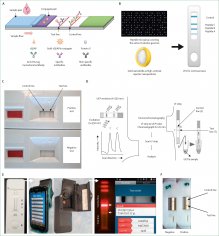Crucial role of biosensors in the detection of helminth biomarkers in public health programmes
Interfibio senior researcher Dr. Claudio Parolo in collaboration with researchers from ISglobal, Wellcome Sanger Institute, Universitat de Barcelona, Leiden University Center for Infectious Diseases and GraphenicaLab have published the following article:
Crucial role of biosensors in the detection of helminth biomarkers in public health programmes
The Lancet Microbe, 2024, Volume 0, Issue 0, 100964
Abstract:
Helminthiases are highly prevalent but neglected infections that affect more than 1·5 billion people worldwide. Considering the worldwide prevalence of helminthiases, WHO has declared them a public health concern since 2001, necessitating rigorous control and elimination efforts. However, only a few reliable point-of-care diagnostic tests are available for assessing the effectiveness of public health interventions targeting helminthiases, thus increasing the risk of suboptimal outcomes, misallocation of resources, and emergence of drug-resistant helminths. This Review provides an introduction on helminthiases and strategies to achieve control, elimination, interruption in transmission, and eradication of these infections. The Review then comprehensively details the existent biosensors that can be used to detect these infections in human samples, focusing on their target biomarkers, the bioreceptors used, and the sensing readouts. The Review concludes with an in-depth discussion on the persistent challenges related to helminthiases, aiming to encourage the development of much-needed diagnostics specific to these neglected infections.

